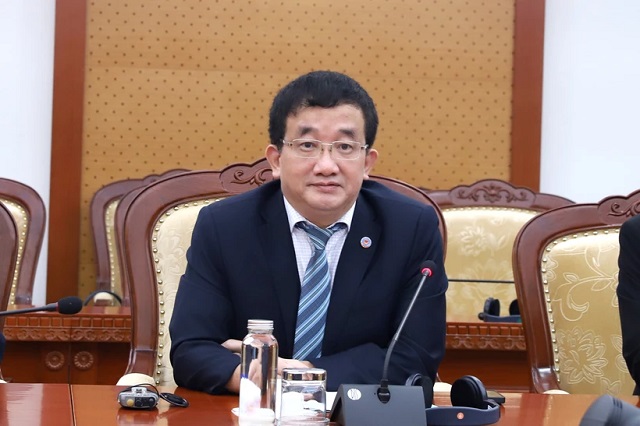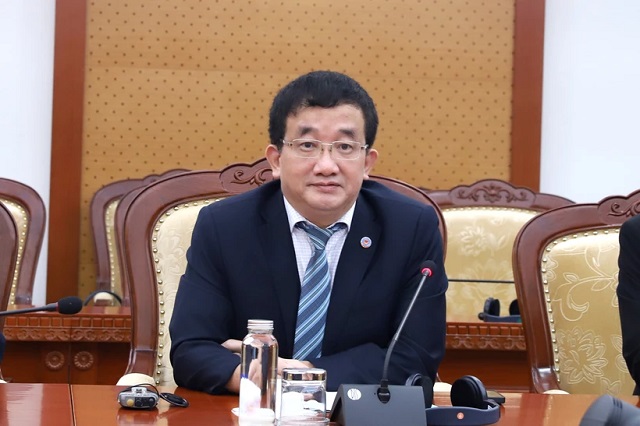
Mr. Vu Duc Chinh, Director of the Department of Accounting and Auditing Management and Supervision, Ministry of Finance. (Photo: Vietnam+)
|
Vietnam’s economy is increasingly integrating with the world. Therefore, the implementation of International Financial Reporting Standards (IFRS) is an inevitable trend and the government is pursuing the goal of bringing IFRS to Vietnam.
As planned by the Ministry of Finance, the industry will issue 16 public accounting standards in 2024. So far, the Ministry has issued 11 standards and is currently submitting 5 more standards to the Ministry’s leaders.
Mr. Vu Duc Chinh, Director of the Department of Accounting and Auditing Management and Supervision, Ministry of Finance said that IFRS is a good practice in the world, its implementation will help Vietnam improve the quality of financial reporting, enhance transparency and accountability of enterprises. Furthermore, the application of IFRS will create the premise for Vietnam to upgrade the stock market.
Previously, Mr. Chinh had a working session with Ms. Linda Mezon-Hutter, Vice Chairman of the International Accounting Standards Board (IASB) and a delegation to discuss a number of issues related to the experience of applying International Financial Reporting Standards (IFRS) in Vietnam.
According to Mr. Vu Duc Chinh, Vietnam is a new country to IFRS, so there are many difficulties and challenges in the implementation process. In fact, Vietnam still lacks human resources with deep understanding of IFRS. Meanwhile, the initial investment cost is large and it is necessary to create new habits, especially in terms of thinking for accounting staff…
In addition, Mr. Vu Duc Chinh shared that Vietnam is different from some other countries, the standard-setting body in Vietnam is the Ministry of Finance, not professional associations. Therefore, the standards issued by the Ministry of Finance will become legal documents, which are mandatory. This also means that the legality of standards will be higher than that of standards issued by professional associations like some other countries.
In this regard, Ms. Linda Mezon-Hutter said that the International Accounting Standards Board is eager to share information and experience of other countries that have applied IFRS, in order to come up with contents that are suitable for the large number of enterprises in Vietnam.
To facilitate the implementation of IFRS in Vietnam, Ms. Linda Mezon-Hutter recommended that Vietnam should assess and analyze in detail the differences between IFRS and domestic standards and regulations, it is possible to study the issuance of documents assessing and analyzing the differences for public disclosure. In addition, Vietnam needs to build and prepare IT infrastructure for the conversion.
In particular, Ms. Linda Mezon-Hutter emphasized the need to focus on research and training on IFRS for staff (accounting and auditing human resources) as well as enterprises implementing the application.
According to Ms. Linda Mezon-Hutter, Vietnam should maximize the use of resources from experts from large accounting and auditing firms in the world and in the region, who have much experience in consulting on IFRS implementation.
“Classifying businesses by size as Vietnam is doing is very important because not all businesses have the same capacity. This factor is necessary and beneficial for Vietnam in the process of IFRS adoption,” said Ms. Linda.
In his role as the standard-setting body, Vu Duc Chinh said that the Ministry of Finance is always interested in promoting successful IFRS implementation by enterprises and at the same time applying the experience of previous countries, advising the Government on the most appropriate solutions and implementation plans for Vietnam./.
Han Nguyen













